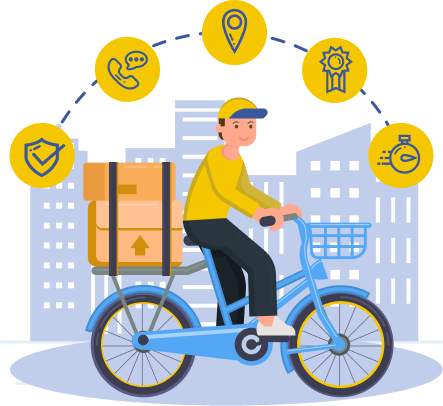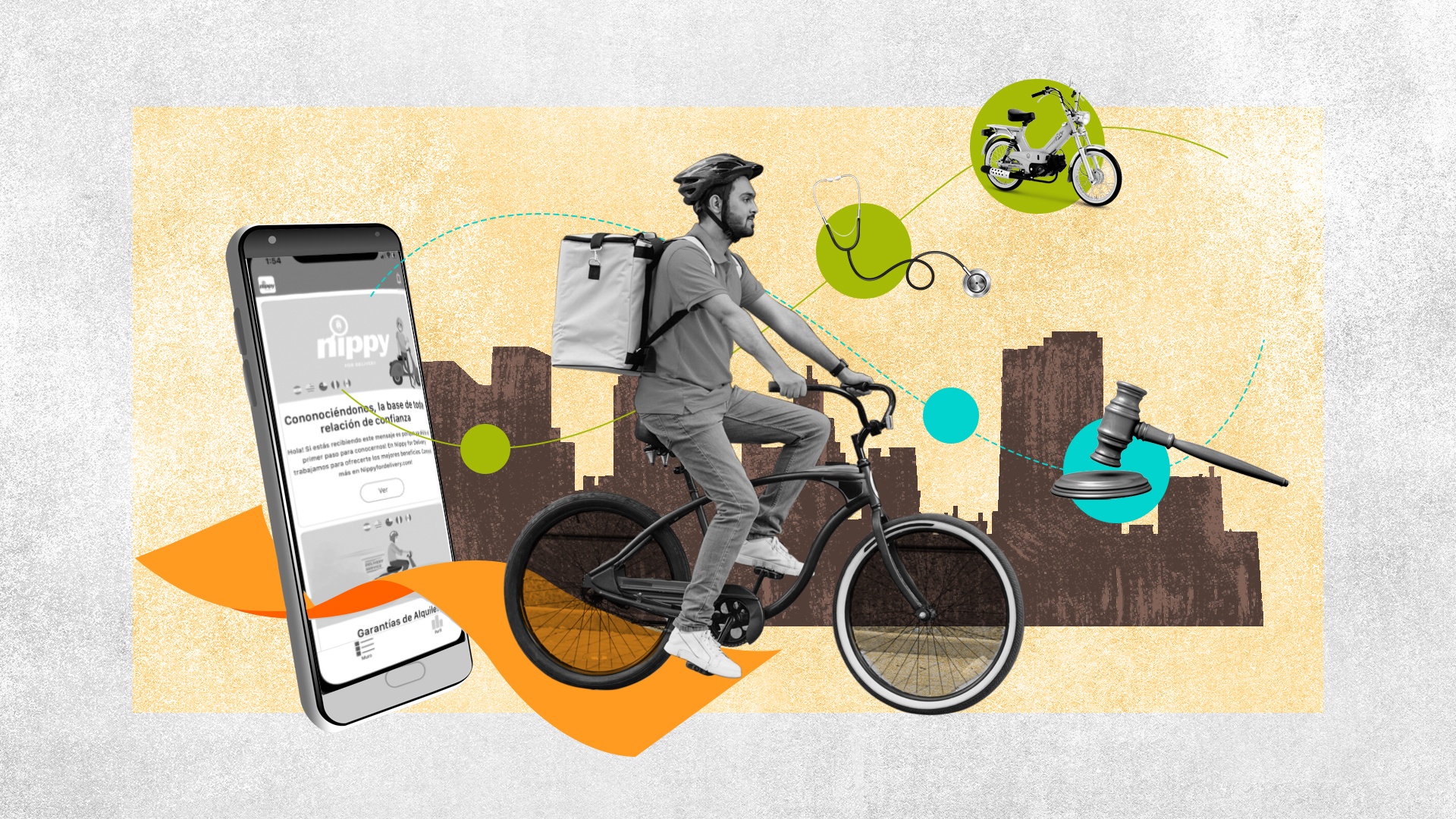Working from a mobile application is an attractive alternative for those who need immediate income. Whether it's to deliver orders or work as a driver, the options are within reach of a mobile phone. While they manage to adapt to the country they have arrived in, the migrant population finds in them a form of sustenance. However, the precariousness of this type of work is also a fairly widespread reality. In Córdoba, a platform arose that aspires to solve some of the problems of migrants who work on these platforms.
It's called Nippy and along with another start-up, Drixit, will represent Argentina at the 2021 Entrepreneurs World Cup. Why is it important to create solutions for people who work on mobile applications? Because there are more and more of them and they need it: there is no one who is addressing the shortcomings that these workers face.
That's what Diego Amondaray, CEO of Nippy, thought. “The idea arose after a conversation I had with Luis Sequea, a Venezuelan who at that time received income through Uber. He told me about his life and I understood that there was a mass of people who had migrated forcibly, who had left everything to have a better future and who were now looking for opportunities, "says Amondaray.
That conversation, which took place in 2018, culminated in a project that resembled a job store and connected migrants with job opportunities. With time and the verification that these people were already working on the applications, the idea mutated into what it is today.

According to the International Organization of Workers (ILO), we are facing one of the greatest transformations in the world of work, in reference to these new platforms that mediate between the supply and demand of various products and services, organized by a legion of independent workers.
This independence, which is often put in quotes and relativized due to the conditions in which the relationship with the large platforms exists, reduces the possibility of having employment benefits that are obtained in other jobs. Some frequent problems have to do with access to documentation, medical insurance for family members, credits or even study opportunities.
As of October 2020, the ILO published a report explaining that the greater presence of delivery platforms in Argentina coincided with the arrival of a strong flow of migrants from Venezuela, who on many occasions found in the delivery applications a first job option upon arrival in the country. Today there are around 4.6 million migrants from Venezuela in Latin American countries, about 500 thousand are in Chile and about 150 thousand in Argentina.
According to the survey carried out by the ILO in the City of Buenos Aires, 63.6% of all delivery workers are from Venezuela and, if other countries of origin such as Colombia and Peru are added, the percentage of migrant workers rises to 76.2%. Another important fact is that half of the workers linked to digital platforms said that they took this option due to the impossibility of finding another job. During the pandemic, being considered an essential job, it continued to be an important source of income for the migrant population.

Among the advantages manifested by digital platform workers are the flexibility of hours and that the remuneration is higher than that of other available jobs. But to achieve that income it is necessary to dedicate many hours to work.
At which point Nippy enters. Dylan Sánchez arrived in Argentina in May 2018 and three months later he started working at Rappi. "The results were very quick," he says. One of the things that he appreciates about the work modality is the flexibility in the schedule. In 2020, Dylan received an electric bicycle through Nippy. How does it work? The platform responds to specific needs of migrants who work in applications. “What we do is connect them with opportunities in different apps, so they can sign up and start working, and then we pass them through the benefits system,” explains Amondaray. In this first instance, the benefits are work tools, such as Dylan's electric bicycle, telephone plans - mobile data is essential in his work - and accounting and immigration advice, so that users can, for example, get the monotax or other procedures necessary for its regularization in the country.
“The electric bike increased my earnings, reduced my tiredness, gave me time at home…it was the best thing that has happened to me in the last year and a half,” says Dylan.

For Amondaray, the emergence of a service like Nippy “is inevitable”, because the unstoppable growth of the platforms in turn opens up many areas of conflict. "We think of that worker who happens to generate three times a vital and mobile minimum wage is excluded from the financial system and we solve it," she concludes.
Finding that niche has earned Nippy great accolades. In addition to competing in the 2021 Entrepreneurs World Cup, it was one of the initiatives recognized by Hello Argentina,< /a> a program from Ashoka with the support of the International Organization for Migration (IOM), created with the aim of mapping and supporting innovative initiatives of high social impact that are seeking to respond to the challenges and complex situations faced by migrants in Argentina. Nippy stood out for the positive impact it generates in the areas of employability, education and health, for being a scalable solution.
In fact, it is already present in three countries: Argentina, Chile and Uruguay and its plan for 2024 is to reach 30 countries. Currently there are 3 thousand people who downloaded the new version of Nippy and 250 thousand interested. “We block more people from entering because we are developing and we are falling short,” says Amondaray. Currently, in entrepreneurship they work to broaden their horizons more and more.

The project also had a mention in the call Digital platforms against COVID-19 of the Cities of CIPPEC, together with IDB Lab (the Innovation Laboratory of the Inter-American Bank of Development) and with the support of the National Ministry of Productive Development.
“The awards have nothing to do with an economic issue, but rather with confirming that this is the path, they empower us as a work group, clarify our focus and, of course, give us more responsibility because this is just beginning ”, says the CEO.
A year from now, Nippy is projected in new countries and beginning to consolidate its technological development. "In six years I can already imagine her as a global player," Amondaray says. "Our dream is that anyone who wants to migrate, whether forced or not, can connect with Nippy before leaving their country and when they arrive at their destination, they can achieve financial inclusion and develop as an independent worker." It sounds ambitious and at the same time realistic: the migrant population is growing and the precariousness of their living and working conditions presents new challenges.
***
This note is part of the platform Solutions for Latin America, an alliance between INFOBAE and RED/ACCION, and was originally published el August 30, 2021.
You can read this content thanks to hundreds of readers who support our human journalism with their monthly support ✊. Bank an open, participatory and constructive journalism: join as a co-responsible member.




